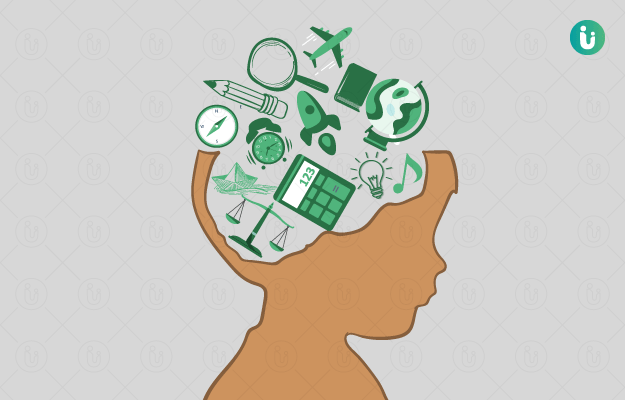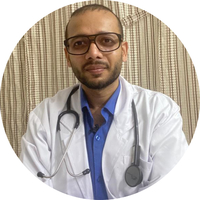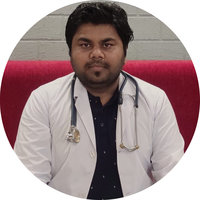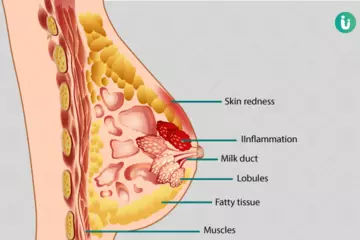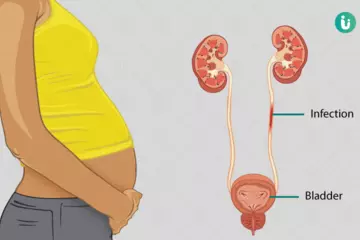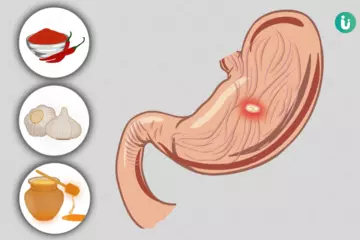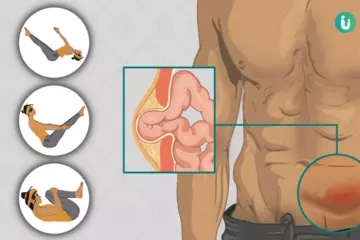What is Attention Deficit Hyperactivity Disorder?
Attention deficit hyperactivity disorder (ADHD) is a common developmental disorder of the brain function, which is usually diagnosed in childhood but may also continue to be present in adulthood. This is a genetic and chemical and structural change-associated disorder of the brain. Children with ADHD are generally overactive, have trouble paying attention, and may behave without thinking about the consequences.
What are the main signs and symptoms?
Majorly, children with ADHD show inattention, impulsivity, and hyperactivity as major symptoms. Either one symptom is predominant, or a combined effect of all the three symptoms can be seen in the child’s behaviour. The most common symptom is hyperactivity. In people with ADHD, these behaviours tend to be more severe, and they can occur more often and interfere with the quality of social functions at school or work. Following are the details of the three leading features:
- Inactivity
Difficulty in concentrating, forgetfulness or misplacement of objects, difficulty in organising or finishing a duty, difficulty in following orders and discussions, easy distraction, and failure to remember details of the daily routine. - Impulsiveness and Hyperactivity
Inability to sit still for a long period, accident-prone, frequent fidgeting behaviour, constant talkativeness; disturbing others, grabbing things from others, speaking at inappropriate times, not listening or waiting for one’s turn before speaking. - Combined Form
Characteristics of both the above symptoms can be seen equally.
What are the main causes?
The exact cause is unknown, but scientists continue to study the underlying mechanisms to prevent the occurrence of ADHD. The common risk factors include:
- Genetic
Genetics play an important role in the occurrence of ADHD. Researchers have shown a possibility of genetic mutations as one of the risk factors. ADHD can also be hereditary. - Brain Injury
Any injury to the brain structure and function either in the womb or in later life may lead to ADHD. - Drugs
If the mother of a child used alcohol, tobacco, or cocaine during pregnancy, the child is prone to developing ADHD. - Lead
Exposure to environmental pollutants, such as lead, during pregnancy, is also a causative factor. - Birth Defects
Children who are born prematurely or with a low birthweight are at risk.
How is it diagnosed and treated?
There is no specific test for the diagnosis of ADHD. A paediatrician or psychiatrist can diagnose ADHD only after a detailed assessment of the child and extracting medical and behavioural history from the parents and teachers.
When you see a doctor, he/she will inquire about the symptoms of your child: when did the symptoms start, where do they occur typically (at home or at school), whether these affect daily and social life of the child, whether there is any family history of ADHD, whether there was a death or divorce in the family, what is the developmental history of the child, past behaviours, and a medical history of trauma or any illnesses. Doctors and psychologists also use different internationally recognised tools, scales, and other criteria to diagnose ADHD. (Consult a doctor with Doctor app)
ADHD symptoms can be treated in numerous ways. Many medications and different therapies are used in combination by the doctors for its treatment. Medications manage brain-associated functions, whereas the therapy addresses thoughts and behaviour patterns.
Stimulants are most commonly used as medications, which reduce hyperactivity and impulsiveness and enable the child to concentrate, perform, and learn. Psychotherapies that include behavioural therapy and cognitive behavioural therapy, are commonly used by doctors. Counselling is also done for the child and family members. Couples are also trained from a parenting perspective, and stress management programmes are implemented. Children with post-traumatic stress disorder have symptoms similar to ADHD but will need different treatment. The most suited treatment totally depends on the child and family. A good treatment needs close monitoring, follow-ups, and making changes if needed in the therapy and medications.
(Get online doctor consultation for any health issue)

 Doctors for ADHD
Doctors for ADHD  OTC Medicines for ADHD
OTC Medicines for ADHD
 ADHD articles
ADHD articles
